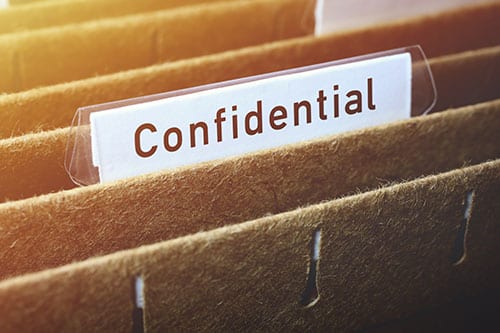The Importance of Privacy for Small Businesses
There are frequent mentions of cyber-crime and identity theft in the news, on the internet, and in discussions between people in business. It becomes more common each year, and the methods used are becoming more elaborate. I receive emails every day about this subject, and products that are designed to protect individuals or businesses from this type of crime. And my cell phone identifies many of my incoming calls with a Scam alert.
In this article, we will address important privacy tips for establishing your business that are designed to protect you and your business. In a subsequent article, we will discuss protecting your customer and client information against fraud and other breach of privacy.
Here are four tips for you in forming your business. If you are just starting an entity, it is your responsibility to protect your company’s privacy and make it difficult for other people to file a lawsuit against your company. Instances of spurious lawsuits are another way that people try to take money from honest, hardworking people and businesses. When you start your business, consider the following:
- Look into various state policies regarding business privacy and sharing information about your company. Nevada is well known as a state that has strict privacy laws, and will not share private business information, even with the Federal Government. Under most circumstances, you can set up a business entity in a state other than your own, and then file your entity in your home state as a foreign entity doing business in your state. Whatever state you choose to set up the entity, if it is not local, then it will make it more complicated to gain your business information, and even more difficult to sue you, because they would have to sue you in the state where your entity is established. So, the state’s privacy policies as well as the distance add to the difficulty for someone else to sue you.
- Work under a dba (doing business as) arrangement. This means that the name of your business enterprise is not the same as the name of your entity. Tide laundry detergent is a brand name, and a dba for Proctor and Gamble. If someone wants to file a lawsuit against the company that makes Tide, they need to know what that company name is. As a small company, you can use this to your advantage. As a real estate investor, I also have a company that acts as either the property manager, or the company that engages the property manager. Let us just assume, for a moment, that the name of my company that owns the properties is called Property Acquisitions LLC (it is not, but I like my privacy too). I do not advertise or use that name any more frequently than I must. So, I establish another company called ABC Properties LLC, and there is a contract between Property Acquisitions and ABC Properties involving the management of the properties. And the only name that people are going to find if they start looking is ABC Properties, and that company does not own anything, so suing that company would be a huge waste of time.
- Use truncation requirements to your favor. In most states, when you establish a business name, you will only have a certain number of letters to put in the space where that name is listed. Anything more is simply dropped out of the records. Many real estate owners will create an entity that is named after a property. And they will make it as lengthy as possible, such as: Saint Louis, Missouri, 123 Mississippi River Drive, Units A, B, and C, LLC. If a person doesn’t really know what they are looking up, not only is it a long name that will have been truncated, but we also changed the order of how the address is identified, so it is backwards. You do not have to do this only with real estate properties, you can also find ways of creating long names for other types of businesses.
- Do not use your name in your business name if you can avoid it. It used to be a source of pride to include your personal name in your business name, such as “Dave Johnson and Sons Movers.” These days, that is like pinning a target on your back. It does make it important to protect that business with very fine service, and if everyone else out there was honest and upright in their business dealings, that would be admirable, but they are not. Carefully avoid through your business name any information that can come back to cause you problems in the future that would be unnecessary.
The bottom line for this topic is that your business is going to have enough challenges in getting started and growing without adding unnecessary threat of lawsuits from the latest generation of “ambulance chaser” criminals trying to make money from your hard work. Your business is for the benefit of you, your family, and your legitimate customers, and you want to protect it not only for now, but also as a legacy to pass along to your heirs. With a little forethought and consultation with your attorneys and/or financial advisors, you can make that a reality.
______________________________________________________
i https://smallbiztrends.com/2017/01/data-protection-tips-for-data-privacy-day-2017.html

